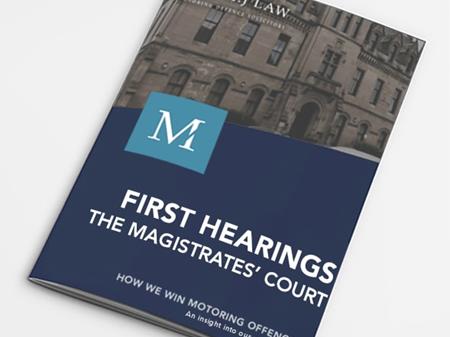Failing To Provide A Blood Specimen
Failing to provide a specimen of blood during a drug driving investigation is a serious offence. The police realise that drugs cannot be measured accurately in breath or by taking urine, and will often place pressure on suspects to give blood samples. This is wrong and can amount to a defence.
We can help you with:
- Understanding the offence
- Identifying defences
- Penalties
- Next Steps
Failing to provide blood for Drug Driving
In 2015 the government created a new offence of drug driving. For the first time, legal limits were created for commonly abused drugs. The aim, supposedly, was to improve road safety and protect the general public. In reality, the legal limits were created to penalise the use of drugs in England & Wales. At a time when countries around the world are relaxing drug policies, the United Kingdom are doing everything possible to criminalise drug consumption. The offence of drug driving is not fit for purpose.
Since the offence was first introduced, the number of people being charged with failing to provide (FTP) has increased tenfold. This is because there is now a separate ‘route’ through which a person can 'fail to provide', whereas beforehand, all those charged with FTP had been suspected of drink driving.
As new offences are created so too are new defences. We have set out below some of the most common defences we use to win FTP cases.
- You dislike needles
- The officer failed to warn you of the consequences of refusing
- You had not driven the vehicle
- You suffer with a mental illness
- You did not want to provide a blood sample
- You felt your treatment was unfair
- You were not given access to a solicitor
Failing to provide blood - Defences
Reasonable excuse
Look at the wording on your charge sheet. You should see the phrase “reasonable excuse“. The police will claim that you failed to provide a specimen without good reason (a reasonable excuse). We can defend the case by claiming that you did, in fact, have a good reason for not providing a blood sample. The term “reasonable excuse” is broadly defined and can relate to a physical impediment or a mental health condition. It could also relate to a fear or phobia.
Let me give you an example. Our team recently defended a young man charged with FTP. For the purposes of this example, I will call our client Jay. Jay was pulled over for speeding. When the officer spoke to Jay, he smelt cannabis and requested a drug swab. The swab showed positive for THC and Jay was arrested. At the police station the officer requested a specimen of blood. Jay refused, but did not say why. He was charged with FTP.
The prosecutor described this case as “open & shut”. He believed that my client was guilty.
We represented Jay at his first court hearing and entered a not guilty plea. When the prosecutor asked me why Jay was pleading not guilty, I explained that he had a ‘reasonable excuse’. The prosecutor looked at me blankly, as if I’d spoken to him in Chinese! "My client dislikes needles", I explained. The matter was set down for trial in 3 months’ time.
Jay had a very good explanation for why he did not mention his phobia of needles to the police officer – he didn’t think it was a medical reason, nor did he have any medical records to support his claim. Why would he? Medical records don’t tend to show a needle phobia. Our team reassured Jay that you don't always have to have documentary evidence of a defence. A statement from Jay is just as compelling.
Shortly after the first hearing we instructed a psychotherapist to produce an expert report for use court. The psychotherapist had a short meeting with Jay and found that he did have a recognised phobia of needles. Note the paragraph below;

To add weight to his argument, we obtained a witness statement from Jay’s mother. She claimed that her son had always disliked needles, from a very young age. Even now when he came to visit, he left the room when Super Vets came on the television!
It is quite normal for a defendant to have to prove his defence (usually on a 'balance of probabilities'). With 'reasonable excuse', however, the burden remains with the prosecution. This means that you do not have to prove your defence - you only have to raise it. The CPS must then prove, beyond doubt, that you don't have a reasonable excuse. This is a very onerous burden that the CPS regularly struggle to displace.
Our case was presented to the court at trial. The prosecution had no direct evidence to disprove Jay's phobia. We had a psychological report and detailed witness statements. The court found Jay not guilty of FTP. He was also awarded costs.
There are, of course, many other ways to defend FTP allegations. Avoiding a conviction is particularly important because of the sentencing options.
Procedure
Police procedure is just as important in a fail to provide case as it is with a drug driving case. The CPS must prove that the officer processing you in police custody stuck to the rules. You can read about the MGDDB procedure on our drug driving page.
Failing to provide a sample of blood - Penalties
The starting point for the court is a 12 month disqualification and a fine. This can increase depending upon the circumstances of the offence, including any aggravating factors (i.e. possession, a car accident, children present, previous convictions etc…).
The most severe penalty is an immediate prison sentence. The Sentencing Guidelines allow the magistrates to send a defendant to prison where they are satisfied that the defendant deliberately refused to give blood and was heavily impaired. This would result in a 12 week prison sentence.
Of course, if you avoid a conviction, you cannot be disqualified.





